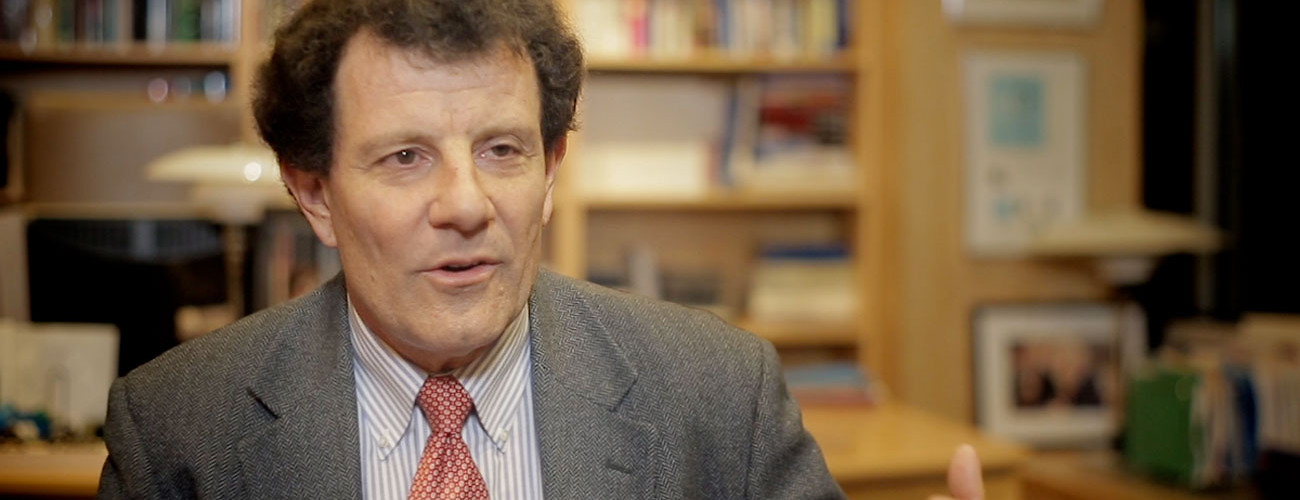Pulitzer Prize-winning author and columnist Nicholas Kristof estimates that as many women and girls die from discrimination each decade as all of those killed in the genocides of the 20th century. It is little wonder then that he sees empowering women as “the central moral challenge of our time.”
Speaking to International Peace Institute Editor and Research Fellow Marie O’Reilly in New York, Kristof shared insights from his time as a New York Times foreign correspondent, columnist, and co-author with his wife Sheryl WuDunn of best-selling books such as Half the Sky and A Path Appears.
He also reflected on the benefits of building a grassroots movement to help end discrimination against women and girls, comparing it with the campaign to abolish slavery that arose in Britain in the late 18th century.
Kristof said this approach could be more effective than the current proscriptive responses adopted in many countries and by the international community at large.
“I don’t think we appreciate how often laws are meaningless 25 miles outside the capital and that sometimes this push for legal solutions, or for treaties, becomes not an impetus for further action but a substitute for further action,” he said.
Kristof’s hope is that by raising awareness and building a movement, “that will in turn be an impetus for better policies all across the board.”
“There is no silver bullet here,” he said. “In a sense it’s silver buckshot—there are a bunch of little things that will help a little bit, but you can’t begin to address issues unless they are on the agenda, unless people are talking about them.”





